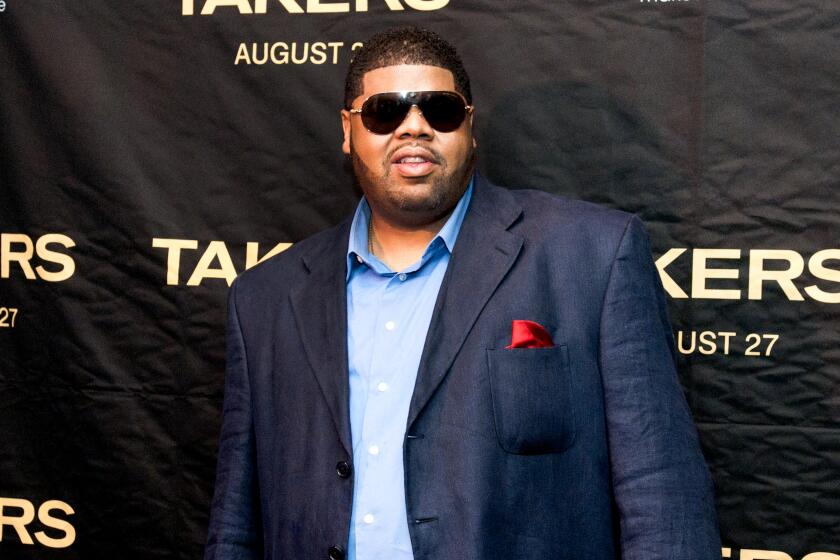Bob Dylan spokesman denies allegation the singer sexually abused a girl, 12, in 1965

- Share via
A spokesman for legendary singer-songwriter Bob Dylan has denied allegations filed in a new lawsuit that in 1965 Dylan “befriended and established an emotional connection with” a 12-year-old girl and then sexually abused her across a period of six weeks.
Filed by a woman referred to only as “J.C.” in the documents, who is now 68 and living in Greenwich, Conn., the suit alleges that Dylan, now 80, “exploited his status as a musician by grooming J.C. to gain her trust and obtain control over her as part of his plan to sexually molest and abuse J.C.,” according to the N.Y. Daily News.
“The 56-year-old claim is untrue and will be vigorously defended,” said Dylan’s spokesman in a statement.
Chucky Thompson, who died Aug. 9 from COVID-19 complications, produced classic records by the Notorious B.I.G. and Mary J. Blige for Bad Boy Records.
The suit, filed in Manhattan Supreme Court, accuses Dylan of befriending the girl as a way to “lower [J.C.’s] inhibitions with the object of sexually abusing her, which he did, coupled with the provision of drugs, alcohol and threats of physical violence, leaving her emotionally scarred and psychologically damaged to this day,” according to the New York Post’s Page Six, which first reported on the lawsuit. Some of the alleged assaults occurred at the famed Chelsea Hotel. Among the accusations against Dylan include assault, battery and false imprisonment.
The suit was filed a day before the yearlong window closed on the Child Victims’ Act, a law that allowed adult survivors of sexual abuse the opportunity to file suit against their alleged abusers regardless of how long ago the incidents occurred.
J.C. is seeking unspecified damages and a jury trial.
Dylan was in his mid-20s at the time of the alleged assaults, which the papers say occurred over a six-week period between April and May of 1965. Since then, according to the suit, J.C. has experienced long-lasting emotional effects including depression and anxiety, which, reads the claim, “are of a permanent and lasting natures and have incapacitated plaintiff from attending her regular activities.”
More to Read
The biggest entertainment stories
Get our big stories about Hollywood, film, television, music, arts, culture and more right in your inbox as soon as they publish.
You may occasionally receive promotional content from the Los Angeles Times.












